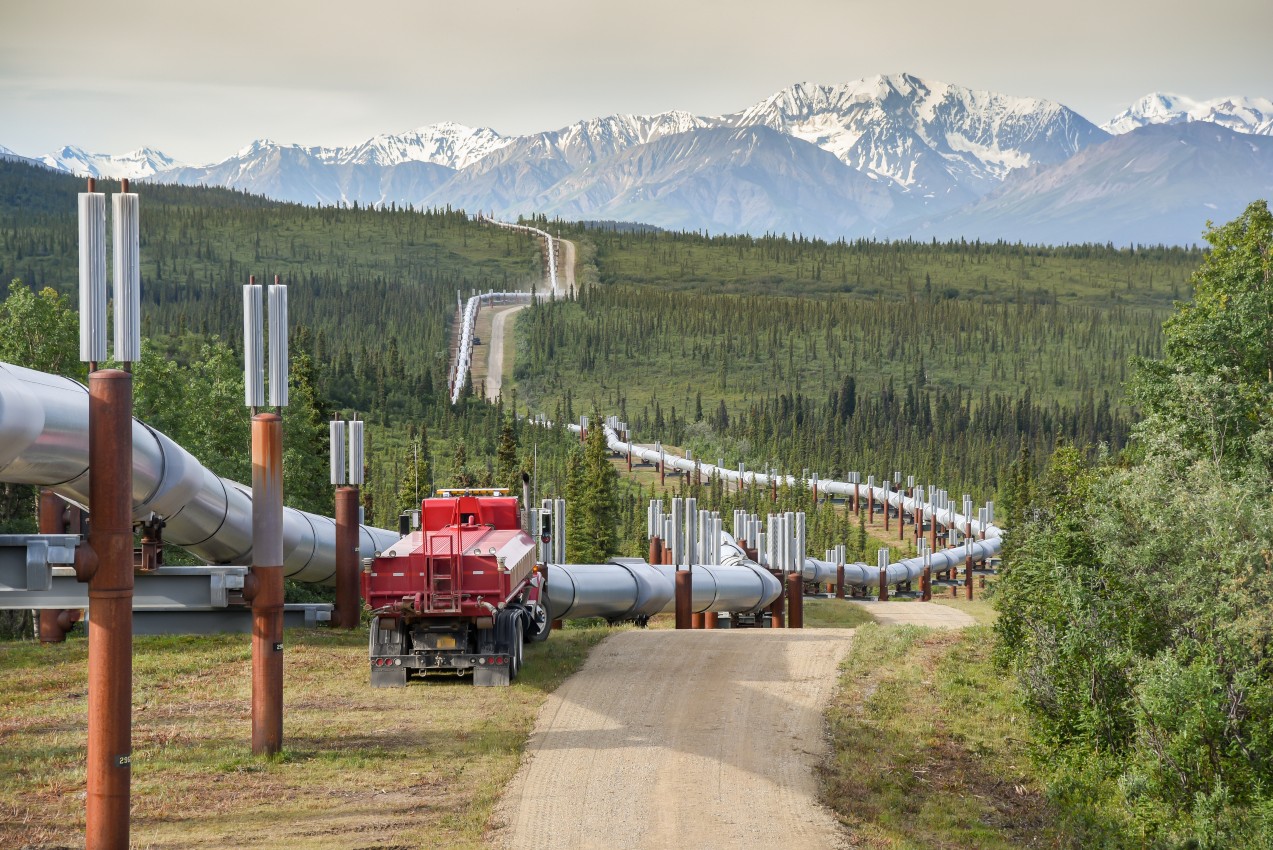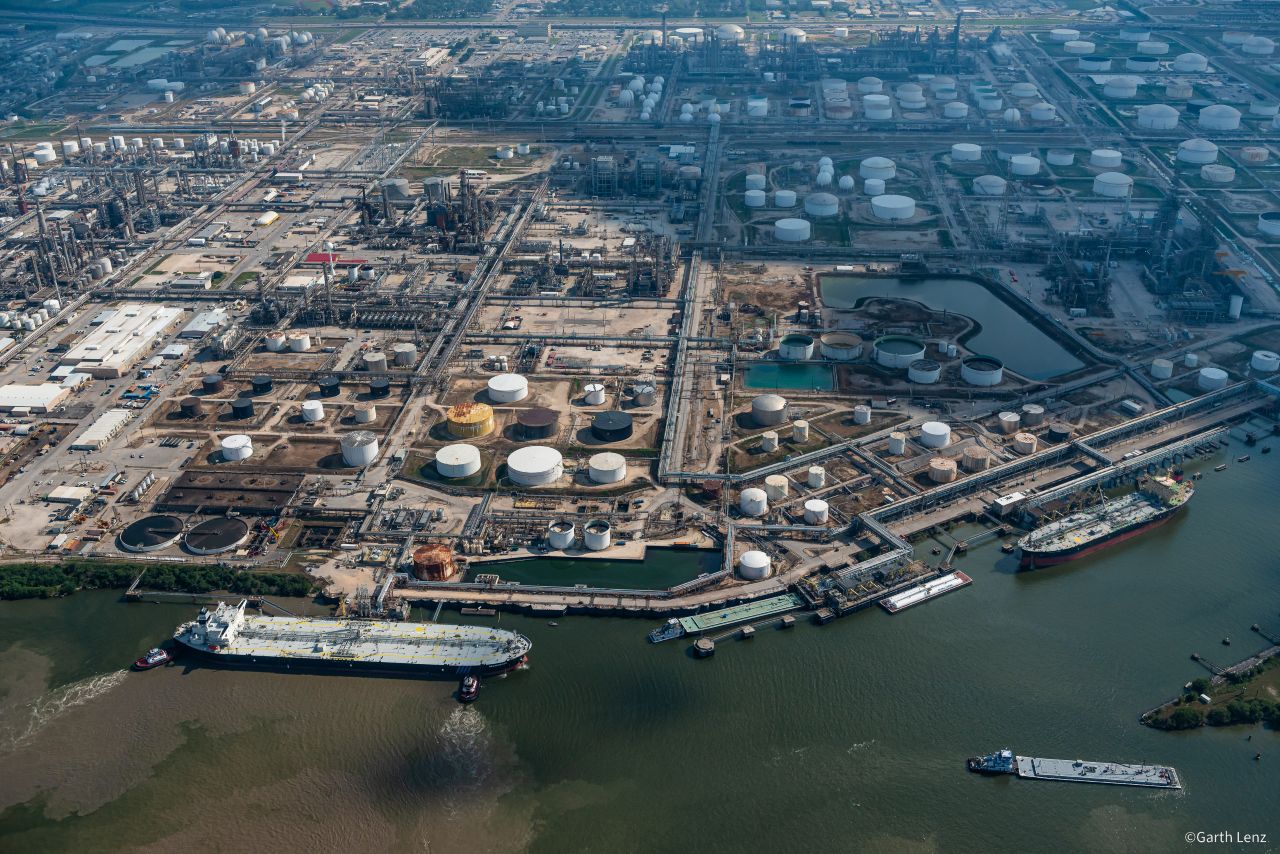Industry lobbyists seek two-year break from limits on cancer-causing pollution from 218 facilities nationwide
_resized.jpg)
Organizations representing heavily polluting industries are taking advantage of the Trump Administration’s offer to exempt them from hazardous air pollution control rules for two years.
The American Fuel and Petrochemical Manufacturers (AFPM) and the American Chemistry Council (ACC) recently sent a letter to the Environmental Protection Agency asking for a two-year exemption to air toxics rules the Biden Administration tightened last year to protect public health.
The rules apply to 218 facilities that make up some of the largest petrochemical complexes in the U.S. Exempting companies from these rules could expose the public to more than 12 million pounds per year of hazardous air pollutants – chemicals known to cause cancer, birth defects, or other serious health problems, based on an EPA estimate in April 2024.
The request for the exemption came after the Trump Administration on March 12 offered to give heavily-polluting facilities a break from regulations under the Clean Air Act. Trump’s EPA set up a mailbox to receive the email requests by March 31 and offered a step-by-step guide explaining how industries could qualify.
“EPA Administrator Lee Zeldin’s action is an extreme and improper abuse of Clean Air Act authorities that only allow for exemptions from vital pollution protections in very narrow circumstances,” said Environmental Defense Fund (EDF) General Counsel Vickie Patton. “This is a Trump EPA-led effort to evade established limits on toxic pollution that protect millions of people across the U.S.”
The hazardous air pollution rules for chemical manufacturers from which the AFPM and ACC have asked to be exempted are among nine sets of regulations that the Trump Administration has told industry they can potentially avoid. EDF estimates that these nine EPA pollution control rules apply to 536 facilities nationwide, including 218 petrochemical manufacturing plants and 151 coal-fired power plants.
In their letter to EPA, the AFPM and ACC asked for a two-year break on air toxics rules requiring petrochemical plants to use updated equipment and setting stronger standards to control emissions of dangerous air pollutants. The Biden-era EPA had strengthened the rule in May 2024, saying the changes “will dramatically reduce the number of people with elevated cancer risks from air toxics emissions from these plants.”
Facilities subject to the rule include Denka Performance Elastomer in LaPlace, Louisiana, which on Sept. 25, 2024, released 645 pounds of carcinogenic chloroprene into the atmosphere. The federal government had in 2023 filed a complaint against the plant, which makes synthetic rubber, for its chloroprene emissions, which it said “present an imminent and substantial endangerment to public health.”
The EPA had given most facilities until between July 2026 and July 2027 to meet the hazardous air pollution rule’s requirements. The regulations say that plants must install better pollution controls and lower emissions to meet certain pollution thresholds. Companies must also install air pollution monitors for six known carcinogens – benzene, 1,3-butadiene, ethylene dichloride, vinyl chloride, ethylene oxide, and chloroprene – along their fence lines to protect people living nearby.
Dr. Inyang Uwak, an environmental epidemiologist with Air Alliance Houston, said these fenceline monitors could have been used to build trust if the industry had used the data to learn which pollutants are excessively high and could show it was working to reduce them.
“It would show that the industry is really trying to be a good neighbor,” Uwak said.
Aside from the hazardous air pollution rules for chemical facilities, the Trump Administration also offered two-year breaks on eight other sets of regulations applying to coal- and oil-fired power plants; manufacturers of iron, steel, rubber tires, and commercial sterilizers; and lime manufacturers, coke ovens, coper smelters, and iron ore processors. The administration said it would consider rolling back these standards permanently.
The nation’s most heaviest-polluting coal-fired power plant, the Colstrip plant in Montana, is among those that filed for a two-year exemption to a 2023 standard that would have required it to install modern pollution controls, according to the New York Times. The plant’s emissions of fine particles, or soot – which is tied to a variety of heart and lung conditions – are higher than any other power plant in the U.S.
“This loophole, if kept in place, will kill Americans, plain and simple,” said Laurie Williams, director of the Sierra Club’s Beyond Coal campaign.
Environmental groups and public health advocates have described the administration’s offer of leniency as a perversion of the intent of the Clean Air Act. The law allows the president to create exemptions up to two years in cases when the country’s national security is threatened and the technology to meet the standards is not available.
In the letter seeking breaks on regulations, the AFPM and ACC said the rule on hazardous air emissions from petrochemical plants imposes “significantly costly requirements on an unworkable timeline” and claimed that it would cost their members $50 billion to comply, though the EPA had only estimated it would cost the industry $1.8 billion.
Of the 218 facilities affected by that rule, 80 are in Texas and 51 are in Louisiana, clustered in areas surrounding Houston, Beaumont-Port Arthur, Corpus Christi, Lake Charles, and heavily industrialized areas between New Orleans and Baton Rouge often called Cancer Alley. These areas are already some of the most heavily polluted in the U.S., with cancer rates and other public health concerns that far exceed the national average.
John Beard, who worked for nearly 40 years in the refining industry before founding Port Arthur Community Action Network in Texas, called the administration’s move “outrageous.” Thirteen of the plants for which the industry associations sought exemptions are in Port Arthur or within a 30-minute drive.
“These laws were enacted because companies polluted with wanton disregard for the environment or for the people who live in that environment,” Beard said. “Now we have rules and regulations that allow them to make record profits and improve the air quality and thus the quality of life for people. Now, Trump wants to throw all of that away and let them go back to their old ways.”
Roishetta Sibley Ozane, a Southwest Louisiana resident who founded an environmental justice group called the Vessel Project, said state regulators in Louisiana already allow the industry to pollute over the legal limits, even without the new exemptions. Nine of the facilities seeking exemptions from are in Southwest Louisiana, including the cities of Lake Charles, Westlake, and Sulphur.
“We feel like the state of Louisiana had already sold its soul to the oil and gas industry and doesn’t care about the community members who live here,” Ozane said. “We’re not shocked, but this is something we plan to continue to fight.”
Lead photo: The Dow Chemical Plaquemine Facility in Iberville Parish, Louisiana, one of the facilities subject to air toxics rules for which the industry is seeking a two-year break. Photo by Garth Lenz/Flight SouthWings.















